-
 2025-12-20 19:39
2025-12-20 19:39
By staff writer
Epsteinberg: Not even the tip has surfaced
Epstein file release fell short of transparency, with much withheld, sparking complaints and public outcry
TEHRAN – The U.S. Justice Department’s release of the Jeffrey Epstein files on Friday has reignited headlines and social media frenzy. Thousands of pages, photos, and investigative documents were made public, showing Epstein with celebrities, politicians, and business elites.
-

By staff writer
Trump eyes Taiwan as revenue source for US weapons
TEHRAN - Late on Wednesday, the Trump administration announced the largest ever U.S. weapons sales for Taiwan, amounting 11.1 billion dollars. The arms sale announcement is the second under President Donald Trump's current administration.
-

By Sondoss Al Asaad
Hezbollah in focus: Strategic goals behind Imad Amhaz video
Following the release of an investigative report in Israel Hayom titled “The Secret Maritime File,” Israel publishes a video featuring Imad Amhaz
BEIRUT— The recent release of a video featuring Lebanese national Imad Amhaz—more than a year after his detention—signals a carefully calculated media and political maneuver by Tel Aviv.
-

By Wesam Bahrani
Disarmament in Gaza: ‘Day after’ pressure
TEHRAN – Gaza appears to be entering a difficult testing phase, the outcome of which will depend on the Palestinians’ ability to forge a unified national position.
-

By Staff Writer
Persian Gulf: A matter of history and diplomacy for Russia
An open letter to the Editor-in-Chief of RT on a recent falsification
Dear Ms. Margarita Simonyan, a recent social-media post published by RT on X (formerly Twitter) has employed the designation “Arabian Gulf” in place of the internationally and historically established name “Persian Gulf,” and raised concerns among Iranian readers, scholars, and media observers.
-

By Fatemeh Kavand
Iran in the orbit of emerging global institutions
Iran’s growing engagement with organizations such as the Shanghai Cooperation Organization, BRICS, and the Eurasian Economic Union reflects a gradual recalibration of its foreign policy.
Politics
-

Araghchi to UK FM: Dialogue requires respect, not unilateral pressure
TEHRAN – Iran’s Foreign Minister Abbas Araghchi reiterated the Islamic Republic’s readiness for dialogue, provided it's based on respect for national rights and not unilateral pressure.
-

Spy executed in Iran after carrying out over 200 missions for Israel
TEHRAN – Iran's Judiciary has confirmed the execution of Aqil Keshavarz, a Mossad agent convicted of espionage and collaboration with the Israeli regime. The execution took place on Saturday morning, following the thorough completion of legal procedures and the ultimate confirmation of his death sentence by the Supreme Court.
-

Resumption of cooperation with IAEA not impossible, but very complicated
TEHRAN – Iran’s Atomic Energy Organization (AEOI) spokesperson, Behrouz Kamalvandi, has emphasized that any inspections of the country’s nuclear sites must carefully balance transparency with national security concerns.
Sports
-

Malavan, Foolad into 2025/26 Iran’s Hazfi Cup quarterfinals
TEHRAN – Malavan and Foolad football teams secured their place in the quarterfinals round of the 2025/26 Iran’s Hazfi Cup on Saturday.
-

Esteghlal club celebrate 80th anniversary
TEHRAN – Esteghlal football club marked the 80th anniversary of their establishment on Friday night in a ceremony held close to Yalda Night (the longest and darkest night of the year), attended by current members, former players, and club officials.
-

Joyless football in Iran
TEHRAN – Tractor defeated Persepolis in the Round of 32 of the 2025/26 Iran Hazfi Cup, but the night raised a deeper question: when insults replace excitement, what remains of the game we love?
Culture
-
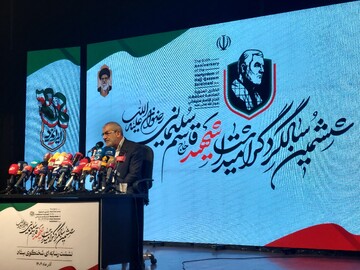
6th anniversary of General Haj Qassem Soleimani’s martyrdom to be held in 12 countries
-
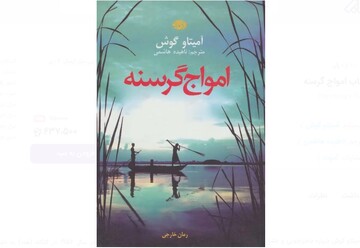
“The Hungry Tide” at Iranian bookstores
TEHRAN- A Persian translation of Indian writer Amitav Ghosh’s novel “The Hungry Tide” has recently been published by Amut Publications in Tehran.
-

“Black Rabbit, White Rabbit” honored at Kerala film festival
TEHRAN- Iranian director Shahram Mokri’s latest film “Black Rabbit, White Rabbit” was honored at the closing ceremony of the 30th edition of the International Film Festival of Kerala (IFFK), in Thiruvananthapuram, the capital city of Kerala, India on Friday.
Economy
-

Iran-China non-oil trade exceeds $20b in 8 months
TEHRAN - The value of non-oil trade between Iran and China stood at $20.15 billion during the first eight months of the current Iranian calendar year (March 21-November 21), the Islamic Republic of Iran Customs Administration (IRICA) reported.
-
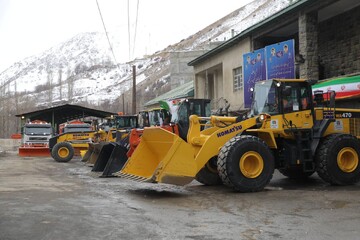
Transport Ministry unveils upgraded road maintenance fleet as renewal accelerates
TEHRAN – Iranian Transport and Urban Development Ministry has unveiled part of a renewed national road maintenance fleet at a ceremony attended by the transport minister, highlighting efforts to modernize equipment and strengthen the country’s capacity to respond to road emergencies.
-
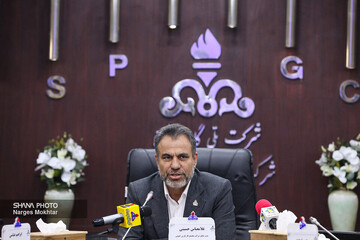
South Pars gas refineries maintain uninterrupted output amid cold snap
TEHRAN – Iran’s South Pars gas processing plants are operating at full readiness and maintaining stable, uninterrupted production despite rising demand as colder weather sets in, the head of the South Pars Gas Complex said.
Society
-

10 countries award scholarships to Iranian students
TEHRAN – Ten countries, namely Hungary, China, Japan, Malaysia, Iraq, Brazil, Serbia, Brunei, Bangladesh, and Russia, offer scholarships to Iranian university students.
-

S. Korea, UNICEF join hands to boost resilience in Sistan-Baluchestan province
TEHRAN – Funded by the Republic of Korea, the United Nations Children’s Fund (UNICEF), in cooperation with the Government of Iran, has constructed a Sewage Treatment Plant (STP) in Kohak, Sistan-Baluchestan province, to foster resilience in the region.
-
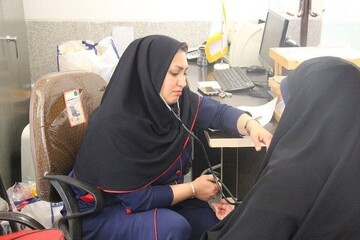
Health screening underway for women heads of households
TEHRAN – The health ministry, in collaboration with the Welfare Organization, is conducting health screening tests for women heads of households nationwide.
Tourism
-
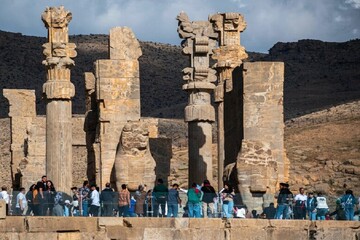
Persepolis to host Yalda Night ceremony
TEHRAN - The UNESCO-registered Persepolis will host a ceremony of Yalda Night on Sunday to mark the winter solstice and celebrate one of the country’s oldest cultural traditions, site officials said.
-
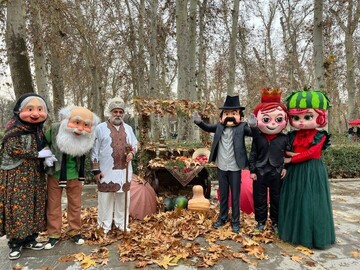
Tehran to host Yalda festival across 22 districts
TEHRAN - Tehran will hold Yalda festival events across its 22 municipal districts through Sunday, Dec. 21, the head of the Tehran Municipality Tourism Headquarters said.
-
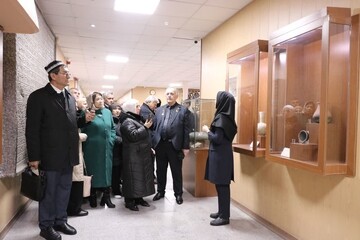
Central Asian writers, poets and physicians visit historical sites in Hamedan
TEHRAN - A delegation of 23 poets, writers and medical professionals from Tajikistan and Uzbekistan visited historical sites and medical facilities in Iran’s western province of Hamedan as part of a cultural and scientific exchange program.
International
-

Trump eyes Taiwan as revenue source for US weapons
TEHRAN - Late on Wednesday, the Trump administration announced the largest ever U.S. weapons sales for Taiwan, amounting 11.1 billion dollars. The arms sale announcement is the second under President Donald Trump's current administration.
-

Hezbollah in focus: Strategic goals behind Imad Amhaz video
BEIRUT— The recent release of a video featuring Lebanese national Imad Amhaz—more than a year after his detention—signals a carefully calculated media and political maneuver by Tel Aviv.
-

Disarmament in Gaza: ‘Day after’ pressure
TEHRAN – Gaza appears to be entering a difficult testing phase, the outcome of which will depend on the Palestinians’ ability to forge a unified national position.
Video Comment
-

Ayatollah Khamenei’s vision of freedom and humanity discussed in intl. conference
-

Iran hosts SCO joint anti-terror drills
-

Holy Mary Metro Station marks interfaith unity in Tehran
-

Academics analyze social dimensions of Resistance in Tehran conference
-
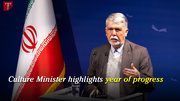
Culture minister highlights year of progress in arts, global image enhancement
Most Viewed
-
Proxy theater in the Persian Gulf: Israel scripts, UAE performs
-
The US playbook: deception before war, bullying after
-
Why terrorists in Iran’s borderlands are rebranding
-
Two new senior Iranian commanders appointed
-
Sydney attack: Israel’s balance of gains and losses
-
Lebanese parliament pushes back, breaks boycott
-
Over 1.7 million Afghans deported from Iran in first nine months of 2025: UNHCR
-
Tourism minister says Yalda can serve as platform for regional dialogue
-
Beyond the Strait: Hormozgan charts course from transit hub to economic powerhouse
-
Tehran, Minsk explore co-op opportunities in oil, petchem sectors
-
Iran warns against resurgence of terrorism in Syria
-
Massive leak exposes masterminds behind Israel’s UAV arsenal
-
Afghanistan seeks to bolster health co-op with Iran
-
Joyless football in Iran
-
Iranians working to facilitate, speed up engagement with Afghanistan: Pezeshkian







